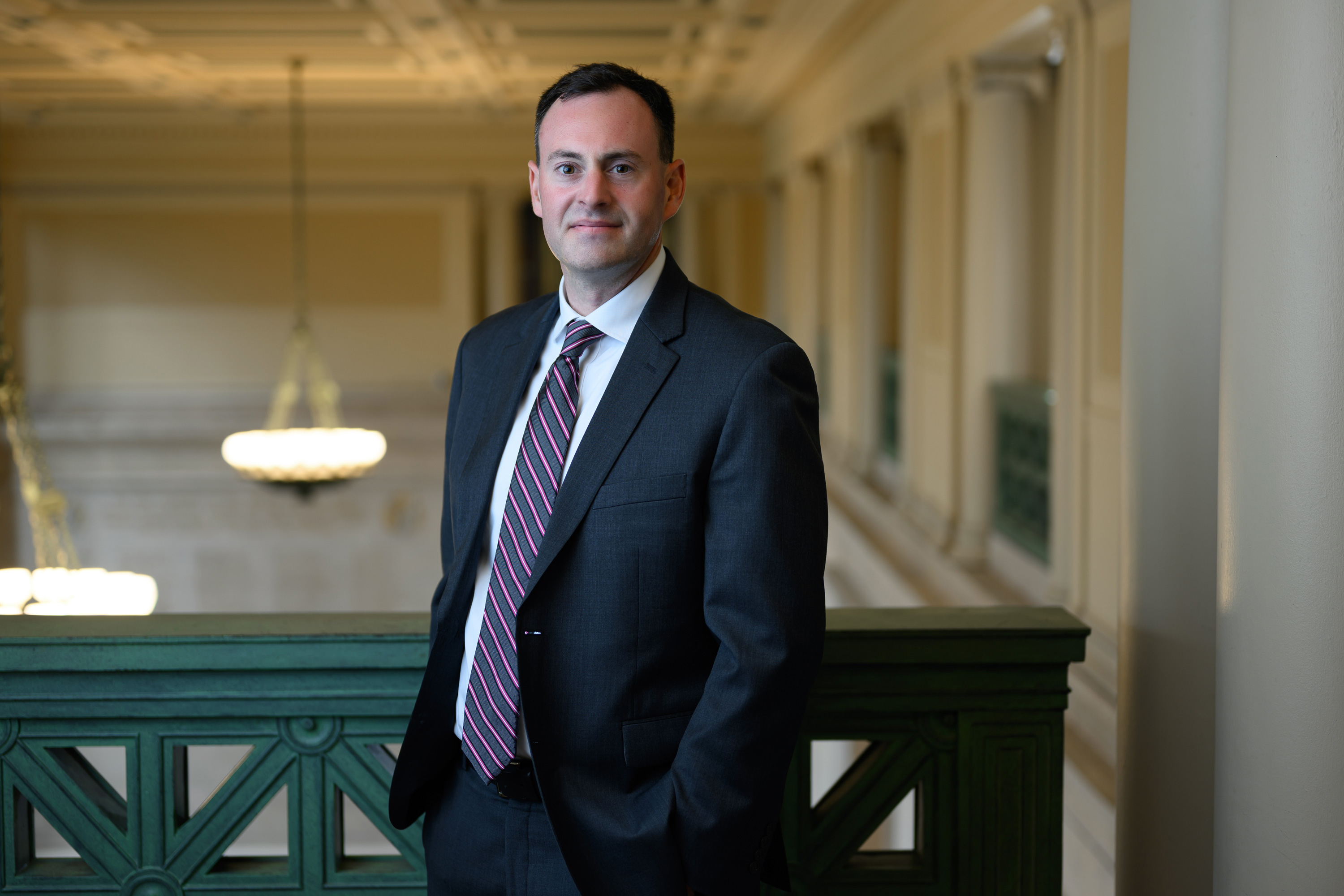
Offering confidential, impartial support, the Ombuds Office helps faculty, students, and staff resolve issues affecting their work and studies at MIT.
Kathy Wren | MIT News
Marcus Stergio will join the MIT Ombuds Office on Aug. 25, bringing over a decade of experience as a mediator and conflict-management specialist. Previously an ombuds at the U.S. Department of Labor, Stergio will be part of MIT’s ombuds team, working alongside Judi Segall.
The MIT Ombuds Office provides a confidential, independent resource for all members of the MIT community to constructively manage concerns and conflicts related to their experiences at MIT.
Established in 1980, the office played a key role in the early development of the profession, helping to develop and establish standards of practice for organizational ombuds offices. The ombudspersons help MIT community members analyze concerns, clarify policies and procedures, and identify options to constructively manage conflicts.
“There’s this aura and legend around MIT’s Ombuds Office that is really exciting,” Stergio says.
Among other types of conflict resolution, the work of an ombuds is particularly appealing for its versatility, according to Stergio. “We can be creative and flexible in figuring out which types of processes work for the people seeking support, whether that’s having one-on-one, informal, confidential conversations or exploring more active and involved ways of getting their issues addressed,” he says.
Prior to coming to MIT, Stergio worked for six years at the Department of Labor, where he established a new externally facing ombuds office for the Office of Federal Contract Compliance Programs (OFCCP). There, he operated in accordance with the International Ombuds Association’s standards of practice, offering ombuds services to both external stakeholders and OFCCP employees.
He has also served as ombudsperson or in other conflict-management roles for a variety of organizations across multiple sectors. These included the Centers for Disease Control and Prevention, the United Nations Population Fund, General Motors, BMW of North America, and the U.S. Department of Treasury, among others. From 2013 to 2019, Stergio was a mediator and the manager of commercial and corporate programs for the Boston-based dispute resolution firm MWI.
Stergio has taught conflict resolution courses and delivered mediation and negotiation workshops at multiple universities, including MIT, where he says the interest in his subject matter was palpable. “There was something about the MIT community, whether it was students or staff or faculty. People seemed really energized by the conflict management skills that I was presenting to them,” he recalls. “There was this eagerness to perfect things that was inspiring and contagious.”
“I’m honored to be joining such a prestigious institution, especially one with such a rich history in the ombuds field,” Stergio adds. “I look forward to building on that legacy and working with the MIT community to navigate challenges together.”
Stergio earned a bachelor’s degree from Northeastern University in 2008 and a master’s in conflict resolution from the University of Massachusetts at Boston in 2012. He has served on the executive committee of the Coalition of Federal Ombuds since 2022, as co-chair of the American Bar Association’s ombuds day subcommittee, and as an editor for the newsletter of the ABA’s Dispute Resolution Section. He is also a member of the International Ombuds Association.
